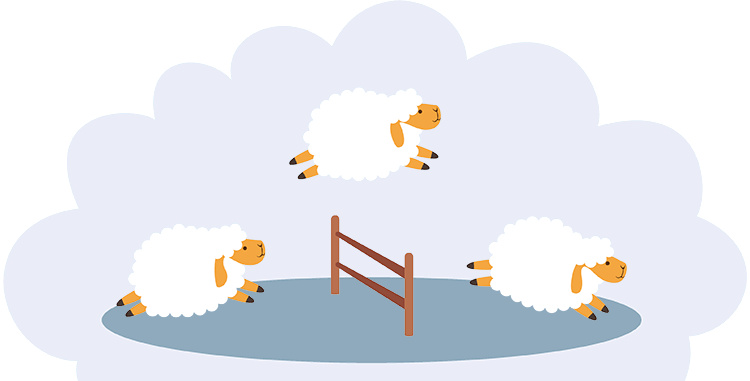Insomnia
Insomnia is one of the most common types of sleep disorders. This term is used to refer to any sleep disorder. A person can not sleep for a long time , he is tormented by painful conditions and the fear that he will not fall asleep for a long time . In this case, the patient often changes his body position, can often wake up and stay awake for a long time after such awakenings. This suggests that a person’s sleep is not deep enough, he can wake up both from external influences (noise or light) and from internal (nightmares, heartbeat, etc.).
Insomnia is the most common symptom of mental illness (psychosis, depression, anxiety disorders). If a person has been suffering from insomnia for a long time , this should raise suspicion of incipient depression.
In some cases, insomnia is not a symptom of a mental disorder, but is thought to be the result of a simple sleep disturbance. However, it is quite difficult to understand what kind of insomnia a person suffers from.
A person suffering from the so-called psychophysiological insomnia complains of “superficial sleep”, while it is impossible to detect any somatic or mental disorders. As a rule, in history there is some adverse events that led to an insomnia or a predisposition to it. With the passage of time in these people sometimes develop mental disorders.
It is important to distinguish between two types of people here:
– people complaining of sufficiently strong insomnia, which is not confirmed after examinations ;
– people who have a low need for sleep, who sleep for a short time, while their performance does not decrease, and their general well-being does not deteriorate.
Prevalence of sleep disorders
According to the WHO, a survey of residents of countries showed that 27% of people who seek medical care have sleep disorders, presented in the form of insomnia . Another study from a developed country showed that 6% of the adult population had confirmed insomnia , with 12% of people having some signs of insomnia along with drowsiness during the day and another 15% expressing dissatisfaction with the quality of their sleep. Research has also shown that women are more likely to have sleep disturbances than men.
Typically, doctors use sleeping pills to treat insomnia. However, they are often accompanied by various side effects. At the moment, the main causes of insomnia called the propensity to anxiety and negative events in life.
Insomnia can be acute (a condition lasting less than 1 month) or chronic (a condition lasting more than 1 month).
Insomnia causes
The main reasons for the transition of insomnia from an acute to a chronic state can be various disorders:
- behavioral disorders;
- medical disorders;
- psychiatric disorders;
- drug disorders;
- toxic disorders.
Insomnia entails various disturbances in the general condition of a person during the daytime. He may complain of headache, loss of energy, low performance, bad mood, problems in relationships with loved ones. Persistent insomnia puts you at risk of depression and increased morbidity.
As noted above, insomnia can be primary or secondary. The primary one does not have any mental abnormalities. Secondary is associated with depression and psychiatric illness.
In among the most common causes of primary insomnia are the following:
- violation of sleep hygiene;
- situations of stress;
- significant mental or physical stress at a later time;
- noise;
- uncomfortable temperature (especially low temperature);
- frequent change of time zones;
- work in the night shift;
- constant work at the computer;
- being in bright light conditions in the evening;
- insufficient amount of light in the morning;
- old age (this can be explained by insufficient physical activity)
- living in a territory with poor ecology (this contributes to an increase in daytime sleepiness)
- constant lack of sleep and, conversely, an excess of time that a person devotes to sleep
- consuming excess amounts of caffeine, nicotine and ethyl alcohol.
The recent practice of non-drug treatments for insomnia . One such method is cognitive behavioral therapy, which includes himself training patients sleep hygiene, sleep restriction method, relaxation treatments.

